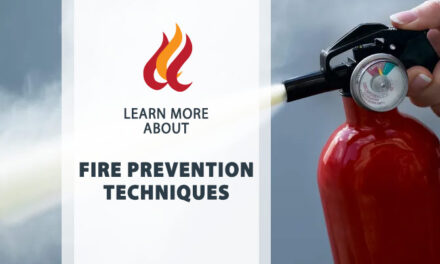Introduction to the Dangers of Smoke Inhalation
Smoke inhalation is a serious risk during fires, whether at home or in a business setting. In this article, we will explore the dangers of smoke inhalation, how to protect yourself and your property, and what to do after an emergency. By understanding the potential risks, you can implement risk management strategies and be prepared when disaster strikes.
What are the Dangers of Smoke Inhalation?
Smoke inhalation is a leading cause of injury and death in fires. The risks include:
- Respiratory issues: Smoke can damage your lungs and make it difficult to breathe.
- Eye irritation: Smoke can cause redness, itching, and even temporary blindness.
- Carbon monoxide poisoning: Smoke often contains carbon monoxide, which can lead to unconsciousness and even death.
How to Protect Yourself from Smoke Inhalation
There are several steps you can take to protect yourself and your loved ones from the dangers of smoke inhalation:
- Install smoke alarms: Ensure your home or business has working smoke alarms on every level and in every bedroom.
- Create an escape plan: Develop a fire escape plan and practice it with all family members and employees.
- Stay low: During a fire, smoke rises. Stay close to the ground to minimize inhalation risks.
- Use a wet cloth: If you must go through smoke, cover your nose and mouth with a wet cloth to help filter out particles and gases.
Protecting Your Property from Smoke Damage
Minimizing risks to your property during a fire involves taking some precautionary measures:
- Keep fire extinguishers handy: Place fire extinguishers in strategic locations and ensure everyone knows how to use them.
- Use fire-resistant materials: When building or renovating, choose fire-resistant materials for walls, roofs, and flooring.
- Keep your property clean: Regularly clean your home or business to reduce the amount of flammable materials.
- Secure your property after a fire: Use emergency board-up services to secure broken windows and doors, preventing further damage.
What to Do After an Emergency
Following a fire or other natural disaster, it’s crucial to take the appropriate steps:
- Contact your insurance company: Inform them of the damage and start the claims process.
- Hire a professional restoration company: A qualified provider can help you with cleanup, repairs, and restoring your property.
- Assess your health: Visit your primary care physician or a health plan provider to ensure no lingering health issues arise from smoke inhalation.
Choosing a Restoration Company
When hiring a professional to help with damage restoration, consider the following:
- Experience: Choose a company with a proven track record in fire and smoke damage restoration.
- Reviews: Check online reviews and ask for recommendations from friends and family.
- Availability: Ensure the company can begin work within 30 days to prevent further damage.
- Are you licensed and insured? This ensures the company is operating legally and can cover any potential damages.
- What is your response time? A quick response is crucial to minimize damage and prevent further issues.
- Do you offer a warranty or guarantee for your work? This provides peace of mind and ensures you won’t have to pay for any additional repairs.
- Can you provide references? A reputable company should have no problem offering client testimonials and references.
- Backup your data: Regularly back up important files and documents to an external hard drive or cloud storage.
- Invest in a backup internet connection: A secondary internet service provider (ISP) can help ensure you have access to vital information during an emergency.
- Have an emergency communication plan: Establish a plan for communicating with family members and coworkers in case your internet connection is disrupted.
Questions to Ask a Restoration Company
Before hiring a professional for restoration services, ask these interview questions:
Internet Service Providers (ISPs) and Smoke Inhalation Dangers
During a fire, your internet connection can be disrupted, making it difficult to access important information or communicate with loved ones. Consider these tips:
Conclusion
Understanding the dangers of smoke inhalation and taking steps to protect yourself, your loved ones, and your property can help minimize risks and ensure a safer environment. In case of an emergency, having a plan in place and knowing who to contact for restoration services is essential. If you find yourself in need of a top fire restoration company, consider Del Mar Builders at 800.298.0900. By being proactive and informed, you can navigate the aftermath of a fire or natural disaster with confidence and peace of mind.

